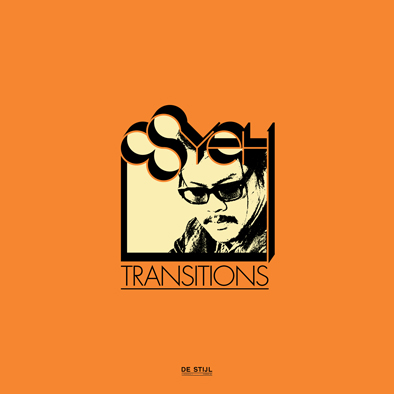 My appreciation of Spencer Yeh has increased in recent years due to his clear disinterest in re-covering familiar and expected territory.  Nowhere is that creative restlessness more conspicuously on display than here, an entire album of charmingly ramshackle left-field pop.  As it turns out, Yeh has been concealing a knack for songwriting all these years, as Transitions is a legitimately excellent and charismatic effort that makes me wish he had been doing this all along.  These are some of the most instantly likable songs that I have heard all year.
My appreciation of Spencer Yeh has increased in recent years due to his clear disinterest in re-covering familiar and expected territory.  Nowhere is that creative restlessness more conspicuously on display than here, an entire album of charmingly ramshackle left-field pop.  As it turns out, Yeh has been concealing a knack for songwriting all these years, as Transitions is a legitimately excellent and charismatic effort that makes me wish he had been doing this all along.  These are some of the most instantly likable songs that I have heard all year.
This, of course, is not Yeh's first foray into "pop," as that honor went to last year's "In the Blink of an Eye" 7" single.  Writing a great album is quite a bit different than recording a cool fluke single though and Yeh does not seem to have taken the challenge lightly...at least not from a craftsmanship angle.  In another sense, Spencer seems to have approached the album extremely lightly, which is exactly the right way to approach a pop album.  Transitions does not feel like any sort of calculated attempt to appeal to a wider audience; rather it feels like Spencer had an enormous amount of fun constructing short punchy songs packed full of meaty bass lines ("Transitions"), kitschy drum machine grooves (pretty much everything), and a host of amusing curve-balls like horns, wah-wah guitar, and crude 8-bit-sounding synth textures (ie- the killer, blurting breakdown in "Masculine Infinity").
Happily, Spencer's embrace of tunefulness and enthusiastic appropriation of New Wave-isms and burbling synths does not coincide with any sort of decrease in intelligence or any sidestepping of his more esoteric influences.  For example, the album's most overtly odd piece (the lurching, sing-song "Laugh Track") betrays a clear love of prog/art pop like Robert Wyatt and Slapp Happy.  Even more notable is the album's gleefully subversive synthpop closer "I Can Read Your Mind."  It is easily the album's most conventionally catchy and radio-friendly song, but it could not possibly be less commercial in origin as it is a actually a Father Yod and The Spirit of '76 cover.
There are a couple of slight wobbles in quality among these ten songs, like the guitar-centered power pop pastiches "The New Guy" and "Whose Life," but the album otherwise has the feel of a greatest hits album.  As bizarre as that sounds (particularly for a former noise musician), it is not hyperbole: nearly all of these songs sound like great, hook-heavy would-be singles that would make me exclaim "Woah- who is this?" if I heard them by chance on a college radio station or something.
Probably the highest compliment that I can pay Transitions is this: Yeh covers Stevie Nicks' "Rooms on Fire" and it turns out to be one of the album's weaker pieces.  While I am a closet Fleetwood Mac superfan, Yeh's original pieces are actually a lot more vibrant, quirky, and witty.  Of course, part of that might be because Yeh is a bit too reverent and serious in his treatment of the Nicks' piece, an error that he does rarely makes elsewhere  In fact, it is often pretty hard to tell when Yeh is being serious and sincere and when he is merely being hilariously deadpan, but his dry tone works much better in his own pieces because it is couched amidst livelier, more triumphantly absurd music.
Yeh has accomplished something truly unusual, as he has essentially made a weird, indulgent, and inventive pop album completely on his own terms that may perversely have widespread appeal.  Significantly, that is entirely due to Spencer's energy, sense of humor, and remarkably intuitive understanding of strong songcraft rather than any actual attempt to be liked outside the underground/avant-garde milieu.  I recognize that making a (mostly) synthpop album is an incredibly trendy thing to be doing right now, but there is a hell of a lot of playful self-sabotage and wrongness thrown into the mix to balance it out here.  To my ears, this is one of the most enjoyable and surprising albums to come out this year.
 
Read More


